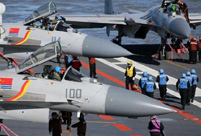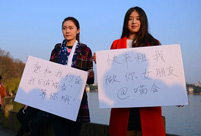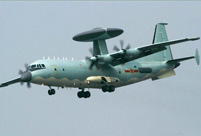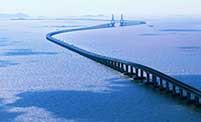


(Illustration: Liu Rui/GT)
Last year was a significant one for China and Europe as it marked the 40th anniversary of the establishment of their diplomatic relations. Along with this symbolism both sides made specific steps to boost their cooperation including the participation of several powerful European countries in the newly founded Asian Infrastructure Investment Bank. This might be an even more important year for Sino-European relations. But that depends on whether the EU will grant China Market Economy Status (MES).
According to the Chinese WTO Accession Protocol of 2001, the Non-Market Economy (NME) status of the country will expire on December 11th. This will possibly result in a legal obligation to give the country MES in the aftermath of this date. The issue remains controversial in the US and EU.
Washington is highly critical while the majority of European states are positive predisposed. Within this framework, as is often happened in recent decades, the US is exerting pressure on the EU to avoid granting China MES. The Financial Times, for instance, recently published an article describing this pressure as a warning message.
Washington traditionally views Beijing's ambitions suspiciously. Taking into account that the achievement of MES has been a core strategic interest of the latter for years, the former is rather hesitant, especially in a period when the critical deadline is approaching. Further to this, the US presidential election of this November leads some politicians to exaggerate and expand their criticism on "hot issues" such as China. Some of them believe they can be more vocal and gain public support by emphasizing their view against the country's potential MES.
The flagship of US opposition to the matter is a study conducted by the Economic Policy Institute. This report associates Beijing acquiring MES after December 11 with economic catastrophe for Europe. In particular, it concludes that between 1.7 and 3.5 million EU jobs will be at risk. The argumentation is principally based on the concern of some industries about serious repercussions. Europe, they fear, might be unable to impose tariffs on cheap products coming from China while already existing cases at the WTO level will be settled in favor of Chinese companies. Italy is one of the European countries agreeing with US skepticism and actively lobbying in Brussels to deny Beijing MES.
But an in-depth study published by the European Parliament last month downplays catastrophic scenarios for Europe. Specifically, it asserts that "the economic implications of granting China MES may be positive for certain sectors of the economy and negative for others [and that] no full-fledged impact assessment has yet been carried out." In other words, the study denotes that the EU has to elaborate more on how it could benefit by China's MES in the future. Additionally, there are some European researchers such as David Kleimann and Sophia Müller who not only consider "bad politics" denying Beijing MES but also employ alternative models for Brussels to enhance its trade policy when abandoning anti-dumping measures.
Within this framework, the general political temper in the EU is to back China's MES in spite of the disagreement of a few member states. A few months ago the European Commission had informally briefed the media that "it would be unwise not to grant market-economy treatment to China." On the same wavelength, German Chancellor Angela Merkel favors such a development in principle. Britain holds the same opinion. France is not prepared to express any objection.
For the EU to back China's MES does not mean that it ignores technical parameters of the ongoing process. Brussels is in regular contact with Beijing for it to fulfill the necessary criteria and continue its reform policy. The European approach, however, is shaped by political realism.
The EU counts on its strategic partnership with China in a period which sees many Chinese companies participate in ongoing privatizations and Chinese banks contribute to Jean Claude Juncker's new investment plan. The number of jobs that can be created through this deep cooperation cannot be ignored. Europe faces the challenge of defying US guidance and show to the outside world that it is able to make important decisions alone.
 Getting close to the crew on China's aircraft carrier
Getting close to the crew on China's aircraft carrier A beauty's dancing youth
A beauty's dancing youth Chinese stewardess celebrate test flight at Nansha Islands
Chinese stewardess celebrate test flight at Nansha Islands "Rent me as your girlfriend!"
"Rent me as your girlfriend!" World's first 'underwater skyscraper'
World's first 'underwater skyscraper'  Top 10 weapons in the world in 2015
Top 10 weapons in the world in 2015 Are these the world’s scariest landing strips?
Are these the world’s scariest landing strips? In pics: Left behind children in China
In pics: Left behind children in China Eight modern day engineering marvels of China
Eight modern day engineering marvels of China Top 20 hottest women in the world in 2014
Top 20 hottest women in the world in 2014 Top 10 hardest languages to learn
Top 10 hardest languages to learn 10 Chinese female stars with most beautiful faces
10 Chinese female stars with most beautiful faces China’s Top 10 Unique Bridges, Highways and Roads
China’s Top 10 Unique Bridges, Highways and Roads Crumbling Great Wall
Crumbling Great Wall Single, lonely expats share their stories
Single, lonely expats share their stories Will Taiwan vote sway cross-Straits peace
Will Taiwan vote sway cross-Straits peace Female criminals evade jail time for being mothers
Female criminals evade jail time for being mothersDay|Week